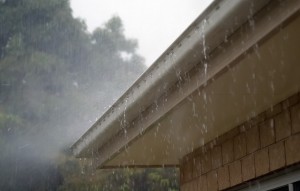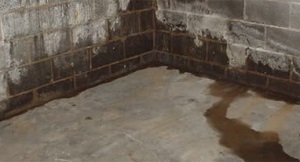

There are many ways that water can damage your home’s foundation. Flooding, oversaturated soil, and hydrostatic pressure are just some of the causes of foundation damage. Here are some tips to help protect your home and foundation.
The first line of defense is to keep rainwater from reaching your home’s foundation. Make sure your downspouts empty far from your foundation. Most contractors and engineers agree that your downspout should empty at least five feet away from your walls. If your land is flat or sandy, you may need to extend your downspouts to go 10 feet or further. There are many options, including ones that automatically unroll during rain showers and ones that fold up against the house, to make mowing and lawn care easier.
Clean, free-flowing gutters are a must when protecting your home. If water pours over the side of the gutters, it may pool alongside or run down the walls of your home’s foundation, causing flooding or hydrostatic pressure. Hydrostatic pressure can be very strong, causing your walls to buckle, bow or lean and also develop cracks.
The installation of a sump pump and pit can protect your home from rainfall collecting in your basement or crawl space. You need to make sure you have the right size pump for your situation. Having an underpowered pump is just as bad as not having one at all. Our team of experts can inspect your home for free and determine the right sized pump for your home. Another option to consider is a battery back-up sump pump. The worst downpours usually occur during thunderstorms or hurricanes, which can often knock out your power. A battery back-up can keep your pump running, ensuring that your basement remains dry until the storm passes and your power is restored.


Water damage can not only ruin your furnishings and belongings, but it can also cause mold and mildew to grow, endangering you and your family’s health. Also, water damage can weaken your foundation and corrode metal in your basement. “An ounce of prevention is worth a pound of cure” may be a cliche, but it is entirely accurate.
Contact us today to learn more about protecting your home and foundation from the North Carolina and South Carolina spring rains. We want your house to be safe and dry and your family secure and comfortable.